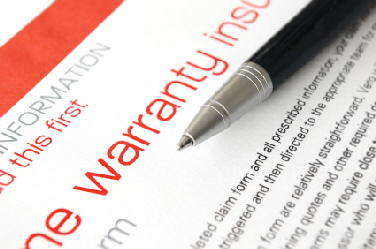Recent Articles
Popular Makes
Body Types
Save Money on Car Maintenance

Saving money on gas is what most people think about when it comes to saving money on operating a new car. Besides gas and insurance, you will also shell out hundreds of dollars each year for maintenance costs for your car. There are ways to save money on car maintenance, but you will have to do a little work. Think of it as a way of paying yourself, because you can end up saving hundreds of dollars on car maintenance in the long run.
The most obvious thing to do is to keep your car in good running condition. Keep the car tuned by paying attention to the small details and addressing them as soon as possible. If you hear a noise that wasn't there before, take the car in to a mechanic. If the car is suddenly using a lot of gas, oil, water or otherwise starts doing something out of the ordinary, take it in to the shop for a mechanic to check it out. This means something is wrong and can probably be repaired before causing too much damage. If left alone, problems can often compound and end up costing more money.
Change belts and hoses in your car before they break. A belt that breaks can cause damage under the hood, resulting in much more money in parts and labor than it would cost to simply have the belt changed at the first sign of wear.
- Change the oil and oil filter in your car every 3,000 miles. Even if you use full-synthetic oil that claims to last for 5,000 or more miles, it's best to change the oil every 3,000 miles. Oil is the most important fluid that goes into your car and is responsible for your car's engine running correctly. Clean oil keeps the engine running smoothly and keeps repairs to the engine to a minimum. Never allow your oil change intervals to exceed the number of miles presented in your car's owner's manual.
When changing your car's oil, you can save dollars by purchasing the oil at a local parts store and changing it yourself for the most savings. If changing the oil isn't something you look forward to doing yourself, bring your car in to a reputable local quick-lube shop rather than a mechanic shop or a dealer. Ask your friends and family about their experiences with local oil change shops.
Each time the oil is changed, check all other fluids and refill or flush and change as needed. The transmission fluid, brake fluid, gear oil and antifreeze should be kept at the manufacturer's recommended specifications. If you see something leaking under your car, have it checked immediately (the air conditioning system will often drip water condensation on the ground, which is normal).
The air filter is something you don't need to change often, but it does need to be checked every time you change your oil and cleaned or replaced as needed. Many air filters don't need to be replaced, just cleaned by blowing it out with an air hose. Some air filters can be washed with water, but make sure to read the directions before wetting your air filter.
Have your car's tires rotated and balanced at least once a year to keep tread wear even. This keeps the wear on the tire's tread and the suspension on your car even. Keeping the tires inflated to the proper pressure can save gas.
Use the lowest grade gas recommended by the vehicle's manufacturer. Using a higher octane gas than that recommended by your car's manufacturer doesn't do anything extra for your car, it only costs extra.
Keep all receipts for any maintenance done on your car. This leaves a paper trail of proof for warranty purposes and also reassures any buyers if you decide to sell your car. You will not void your new car warranty if you do your own maintenance, as long as you do the maintenance correctly and save your records.